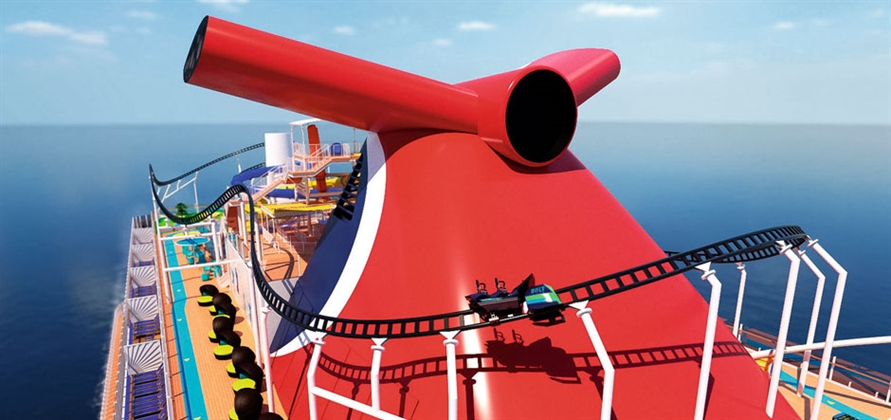
Recent articles have focused on environmental issues surrounding cruise ships. These include the air pollution caused by cruise ships, pollution of Venice's water and Norovirus epidemics. This article will cover some of the problems associated with cruise tourism and provide solutions that can reduce the environmental impact. There is also a discussion about the impact of cruise tourist on Venice.
Norovirus outbreaks on cruise ships
The CDC keeps an eye on recent Norovirus outbreaks that have occurred on cruise ships. The disease spreads through contamination of water, food, or surfaces. It is very difficult to treat with antibiotics. The disease is also resistant to chlorine extremes and temperature extremes. People blame the infected crewmember for their illness, although this is not always true.
The severity of an outbreak depends on the cruise ship. During the peak season (April and May), there is a higher risk of infection than during off-season months. From April through July, there were 43 norovirus outbreaks. The highest incidences of infection were reported by crew and passengers.

Cruise ships cause pollution
Air pollution from cruise ships is a serious problem for coastal communities and the environment. Although small, cruise ships can emit large quantities of air pollution. One estimate states that large cruise ships can produce as much as 210,000 gallons sewage and 1 million gallons graywater per week. They also produce around eight tons solid waste and 25,000 gallon of oily bilgewater. Environmental groups worry that laws regarding pollution from cruise ships are not adequate.
Cruise ships are actually contributing to Europe's pollution problem. The air pollution from cruise ships can be nearly as harmful as that caused by the national car fleet in certain countries. In Denmark, cruise ships emit nearly as much NOX (nox) as half the passenger cars.
Pollution of Venice’s water
The Italian Government is taking actions to stop the pollution of Venice’s water by cruise ship passengers. These cruise ships contribute 14 to 15 percent to the local pollution. Engineers are still working on a plan for plugging the cruise ships into an electrical grid to turn off their engines in ports. However, this plan could take years. Since then, activists have been calling on the Italian Government for a meeting about this issue.
The pollution of industrial activity and the shipping waste have left Venice's waters contaminated. The water in the canals has heavy metals. The city's channels are also contaminated with chemicals. If you are considering diving into the water, it's not a good idea. The water in the city is full of chemicals that could lead to illness.

Cruise tourism's environmental impact
Local communities can experience both positive and negative impacts from the cruise industry. This increases the number of people who travel by road, and also increases the use and cost of buildings and power plants. It also has a negative effect on the local ecosystems. One example is that a cruise ship could produce as many as 50 swimming pools full of highly polluted garbage. It also creates jobs and supports the economy of a region.
In addition to the positive impacts of cruise tourism, the industry also contributes to local economies through the creation of jobs and purchase of goods and services. For example, the 2008 cruise tourism figure was 14% higher than in 2008. Growth has been even higher in the last two seasons than 2008! For many years the trend has remained upward.
FAQ
What type of cabin do I need?
You should consider how big you need the cabin to be when you're deciding on it. Is it okay to share a bathroom with someone else? Or would you prefer to use your own bathroom? Are you sensitive to noise? Are you more likely to be in the dining area than in your stateroom? Also consider whether you desire an interior view, or a balcony. Balconies give you a little more space, but they can sometimes be noisy. Interior views are generally quieter than balconies.
Are there any other things I need to know before I go on a cruise?
Before you travel on your first cruise ship, there are several things you should know. First, you should remember that you will be traveling alongside other people. Don't be critical of other people as you don't know their feelings about anything. Also, remember that you will be eating and drinking with strangers. Dress appropriately. Do not wear shorts or tank tops on deck. Wear comfortable clothes that won't get dirty. Be prepared for extreme temperatures. You should always have plenty of sunscreen. If you plan to spend some time outdoors, be sure to pack a hat with sunglasses and a light jacket. You are responsible for your own actions. Don't drink-drive!
Where can cruises start?
Miami, Florida is a popular place to start a cruise vacation. It has both international ports and airports, so cruises leave from Miami. These two locations make it possible for passengers to explore South America as well as Europe.
What do you get when you cruise?
The most important thing is to have fun. There's no need to be too serious - just have fun.
You'll find plenty of activities for everyone to participate in. If you are feeling bored, there will always be someone who wants to chat with you.
Cruising is about having fun and relaxing. It isn't about seeing everything.
There are many options for cruises, from short journeys in Europe to long trips across the Pacific. It all depends on the purpose of your vacation.
Statistics
- For an example of savings, Royal Caribbean offers up to a 40% discount with a dining package. (travel.usnews.com)
- If you're traveling alone, you may also need to factor in a single supplement, adding up to as much as 100% of the cruise fare. (travel.usnews.com)
- You'll need to budget around $80 per person per day for this option – and an additional 18% gratuity. (travel.usnews.com)
- In addition, 10 to 15 percent gratuity is typically added to bar bills — for alcohol and soft drinks — and gratuities are applied to spa treatments. (cruiseline.com)
External Links
How To
How do I plan my first Cruise?
Planning a cruise can be like planning any trip. There are so many things to consider: where should you go, what activities should you include, how much money to spend, etc. If you're new at cruising, there are key differences in planning your first cruise. Cruises can last up to three weeks, which is why you don't want any missed! These tips will help you make your cruise even more enjoyable.
-
Book at least six months prior to departure. You can save money and avoid crowds by booking early. Additionally, you will have ample time for research on the ship, itinerary and ports as well as activities. You might even find a deal on airfare too!
-
Choose a destination. - It doesn’t matter what port you choose. Just pick the one that interests you. There are lots of reasons why people love cruising to different destinations. Some prefer to explore cities while others prefer to relax on board. Whatever floats your boat, just remember to keep in mind the type of destination you'd like to visit. A popular choice is a Caribbean island, followed closely by Europe and Alaska.
-
Book a Suite - If money is not an issue, consider booking a suite. Suites include extra space, a private terrace, and additional amenities. These suites are typically available for between $100 and $300 per night depending on the size of the room and availability of suites during the sailing date.
-
You should always check the weather forecast. Cruising is often associated in warm tropical climates. You should also check the weather forecasts of the ports on the day you plan to visit them. The ocean is unpredictable, especially in places like Alaska or Antarctica, so it's best to know how bad the weather could potentially be before booking your cruise.
-
Be light-weight - Pack only 10 items when packing for a cruise. It's not necessary to pack too many clothes or shoes into your suitcase. You can instead pack all you need in small, carry-on-sized bags. Consider layering clothing since you won't always have access to laundries onboard.
-
Do your research. Before you buy tickets, make sure to read online reviews. It is important to understand what their cancellation policies are, as well as the pricing policies.
-
Don't miss these must-see spots - Visit each port at least once. Each one has its own culture and charm, so be sure to visit every local site.